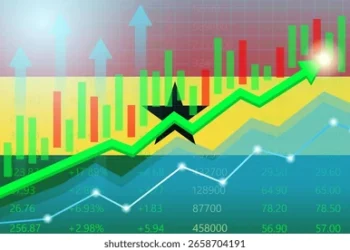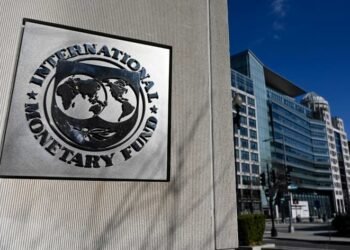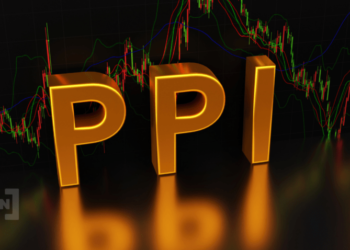An Economist, Prof. Godfred Bokpin, has advised Ghanaians not to expect a V-shaped recovery from the damages inflicted by the current coronavirus pandemic.
According to him, the road to recovery is still a long way because the economy has contracted significantly in key sectors that drive growth.
Speaking on PM Express via zoom on Thursday night, Prof. Bokpin stated that the current contraction in the Ghanaian economy does not come as a surprise because Ghana entered into the pandemic with some form of a weak immune system. He, however, indicated that the economy hasn’t done that bad as compared to other countries.
“Yes, actually when you look at it in relative terms, we have not done badly at all. We can credit what we have seen so far to fiscal and monetary policies that were quickly deployed in response to the COVID-19. We will say that we have avoided the worst moments.
“But what we have seen should not surprise us because, largely we expected this; that we are not immune. Practically, we entered COVID-19 with a bit of a weak immune system because we have just come from the energy crisis ending 2015 and in 2016/17 we walked into the financial sector crises. We were just coming out of that and then COVID hit. The economy has gone through a lot and this is expected. We should not be hopeful that we are going to get a V-shaped recovery, that the economy will just rebound to pre-pandemic levels. We have a long way to go in terms of recovery”.
Prof. Godfred Bokpin agreed with an earlier statement made by the Government Statistician Prof. Samuel Kobina Annim who also joined the discussions via zoom that because data for the last quarter is not yet ready, declaring Ghana as being in a recession at this point will be unfair.
“I agree with Prof., the government statistician, that it’s very early, with challenges of data. Because the primary oxygen of the work they do, the data has to be reliable largely. What it tells us is that as a country, we have to be prudent now that elections are over in terms of the fiscal space and how we manage that, and how it is complemented by monetary policy. So, there are challenges ahead. If you look at the fiscal space; we do not have the fiscal space to do some kind of huge investment”.
The government Statistician Prof. Samuel Kobina Annim also cautioned that people should be circumspect in declaring 2020 as a year of recession. According to him, even though two of the three quarters have contracted, one cannot say the economy is in a recession since data for the last quarter is not yet available.
“For us to declare 2020 as a year of recession, I’m saying that we need to be circumspect in doing that. We have 3 quarters and we have seen that 2 of the 3 quarters are in a recession. One has to take into consideration, in particular, the last quarter of 2020”.
The government statistician, however, admitted that on a year-on-year basis, one may be right to say the economy is in a recession.
“The first quarter of 2020 put our growth rate at 4.9%, in the second quarter, there was a contraction of 3.2% and in the third quarter, we have seen another contraction of 1.1%. We are in the process of collecting data for the last quarter of 2020. We have some data for October and November already. So I will be hesitant to conclude on that [whether Ghana is in a recession or not]. If we are doing an annual GDP, one can confidently say that on an annual basis, we are in a recession. But from a quarterly point of view, comparing Q2 2019 and Q2 2020, also comparing Q3 2019 and Q3 2020, both can be seen that the economy has contracted”.
As to whether the Ghana Statistical Service (GSS) has data rich enough to give a better picture of the size of the Ghanaian economy, Prof. Anim noted that even though there has been some significant improvement over time, there is still a long way to go.
He further explained that the computational process of GDP is sometimes tiring in the sense that data will not be ready at the time that the figures need to be released. So, provisional figures are designated to areas with scanty data which is progressively refined to get the final figures.
“The reason why I indicated that we have a long way to go is that the passage of the Statistical Service Act (103), is creating a platform to have a more collaborative engagement with the agencies that we work with. So moving forward, we will be having administrative data pipelines so that we don’t have our staff going to these agencies to collect data regularly. With the aid of technology, we will have administrative pipelines so that when the data hits our agencies it will automatically hit our database”.
He also educated the populace on the agencies that provide the GSS with data to aid the computation of the country’s GDP. These agencies include GRA that helps a lot with data from the services point of view, the ministry of finance, the Bank of Ghana, and Customs. “So we have a diversity of institutions that help us in data collection”, he added.
Also, speaking from the business perspective was the President of the Africa Investment Group, Dr. Sam Ankrah, who indicated that the business sector is yet to experience the rebound in economic activities as the data has shown. He admonished the government to pursue stringent policies that will focus more on the agriculture sector, as well as creating an enabling environment for businesses to operate. He indicated that investment in ICT infrastructure is also key if we are to have an inclusive recovery from the pandemic.
The panelists also called for policies to be sector-specific so that the full effect can be felt in the economy. Prof. Annim also called on the private sector to get involved in driving the targeted interventions needed to drive growth.























